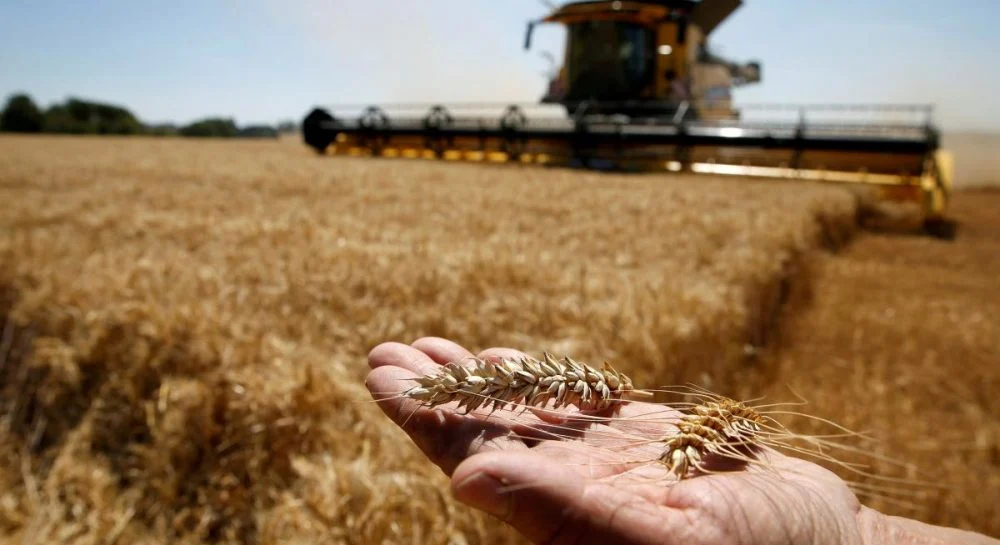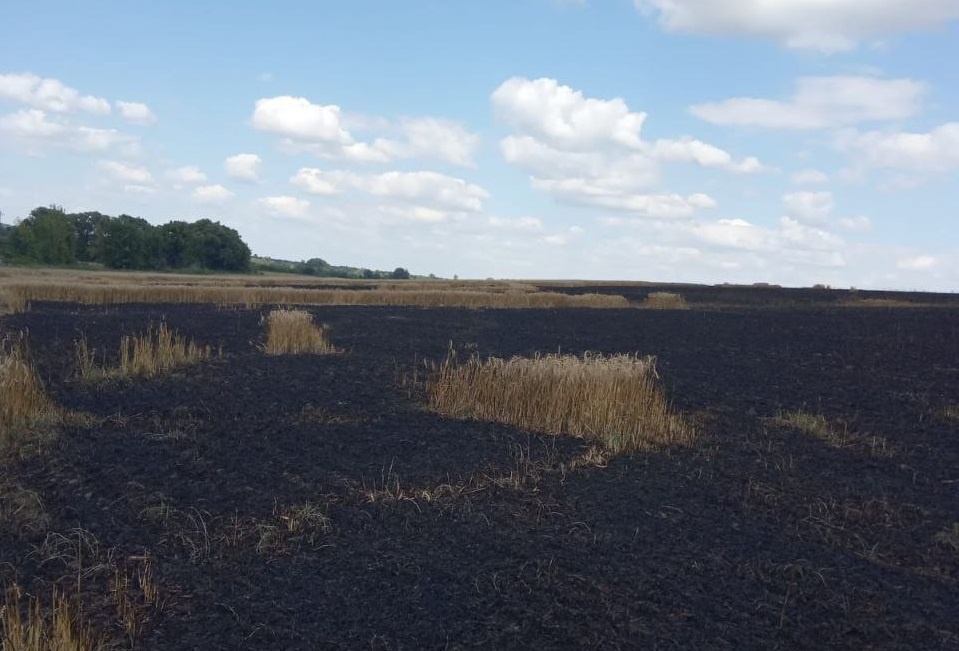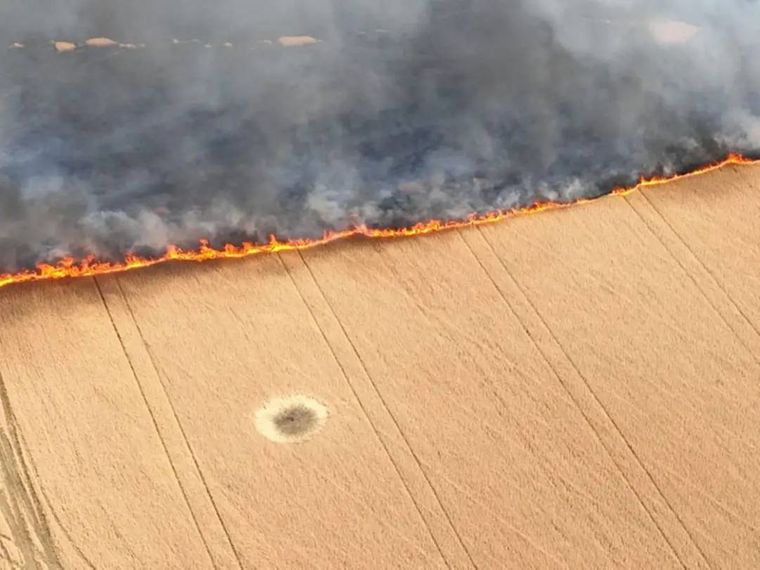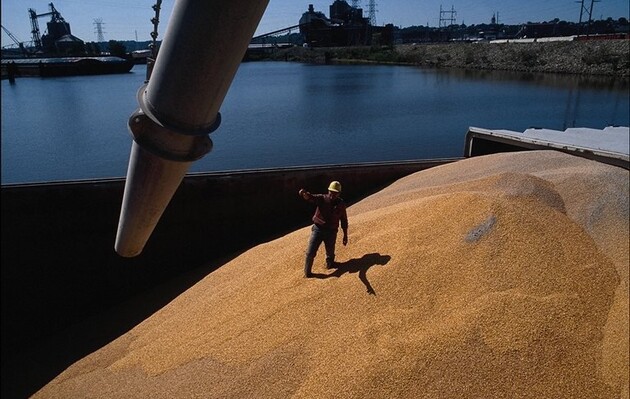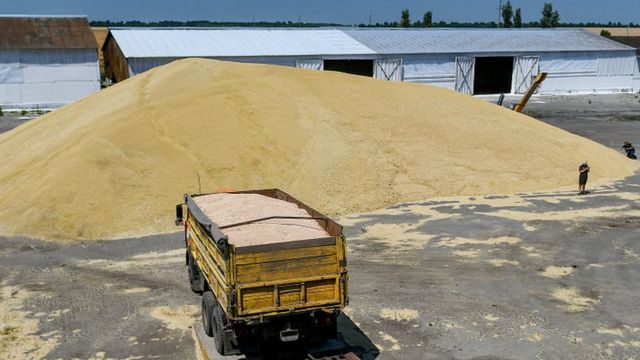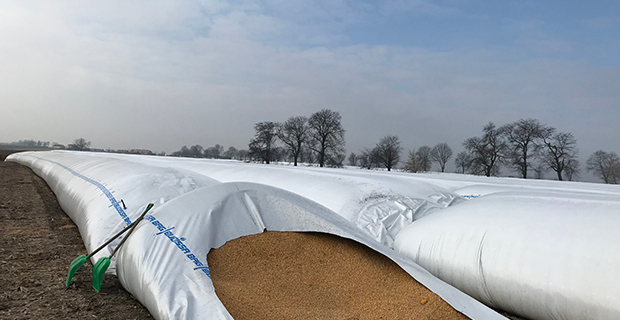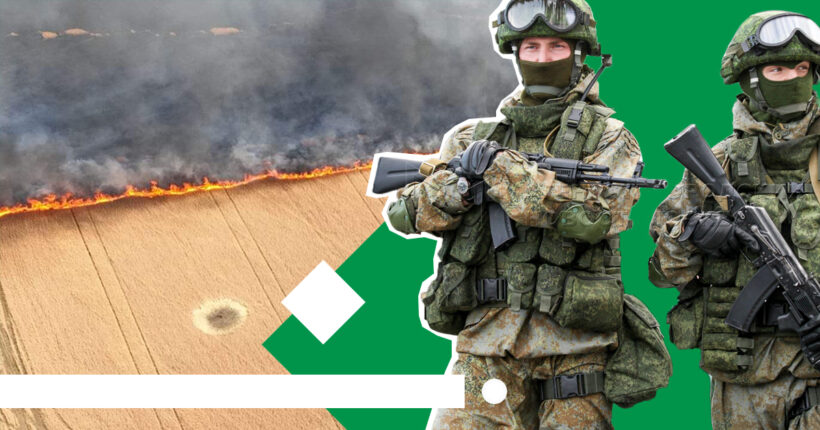
This year, farmers faced a whole set of problems that threaten not only the farmers' own business but also, in principle, sustainable nutrition in the world. According to the UN, the failure of the second sowing campaign can lead to a global food crisis. Of course, this is due to the enemy's aggression.
Rubryka finds out what is happening and what to do about it.
What is the problem?
The russians continue to steal Ukrainian grain. At the beginning of last month, these figures were terrifying — since the beginning of the full-scale war, more than 500,000 tons of Ukrainian wheat worth $100 million have been stolen. Much of this cargo was delivered by truck to ports in occupied Crimea and then transported by ships, including those under Western sanctions.
Farming in the occupied territories
On the website of the Zaporizhzhia Regional State Administration, the message "How to act for farmers in temporarily occupied territories to avoid accusations of collaborationism" appeared. The "instructions" state that farmers can only sell their crops to legal entities and citizens of Ukraine; otherwise, farmers face criminal liability for collaborationism. Such clarification outraged the representatives of agricultural business.
"Let's say one of my acquaintances was approached by buyers with guns. And they bought the harvest from her at the price they wanted," says Oleksandra Garmash, a representative of the economic association MEDA and former manager of the Council of Women Farmers in the Zaporizhzhia region, outraged by the instructions of the regional administration. — What are your recommendations for such farmers and women farmers?"
Harmash asks logical questions:
- Does this apply only to grains or to vegetables, fruits, berries, milk, and meat as well?
- Can ZODA share the contacts of Ukrainian legal entities ready to purchase products from the occupied territory?
- Can ZODA share the contacts of places where farmers, who do not have their own facilities, will be able to store the harvested crop?
- Does ZODA have recommendations on what to do with the crop if there are no conditions for storage and/or there are no legal entities and natural persons of Ukraine who can buy the produce: do not collect and leave on the field, collect and throw away, do not collect and burn, not collect and let it rot or other options?
There are no answers to these questions. But the mayor of Melitopol, Ivan Fedorov, mentioned on the air of the information marathon that there have already been cases when farmers in the occupied territories resorted to extremes and burned their own fields with the harvest so that it did not get to the enemy's hands.
"Each farmer in the occupation has his own tragedy," Oleksandra Harmash tells Rubryka. There are cases when orcs took away equipment, bombed a warehouse, or stole grain. One farmer decided not to harvest the grain she planted last year and watched with a heavy heart as the crop fell because there was nowhere to store it. No Ukrainian residents would buy grain from the occupied territories, and it is impossible to sell it to the russians."
Dangerous working conditions of farmers
"It is challenging to ensure decent working conditions during the war, especially in the south and east of Ukraine. Part of the territory is actually under fire, and the other part is mined," says the executive director of the Seed Association of Ukraine, Suzanne Hryhorenko.
There is danger even in those territories that have already been de-occupied. Ukrainian Armed Forces expelled the ruscist military forces from the Chernihiv and Sumy regions a few months ago. Despite this, russians continue to shell the border territories from the russian-occupied side. For example, only on July 31, during the day, the enemy opened artillery fire seven times on the Bilopillia community, resulting in about 25 hectares of wheat and a farmer's car being destroyed by russian fire.
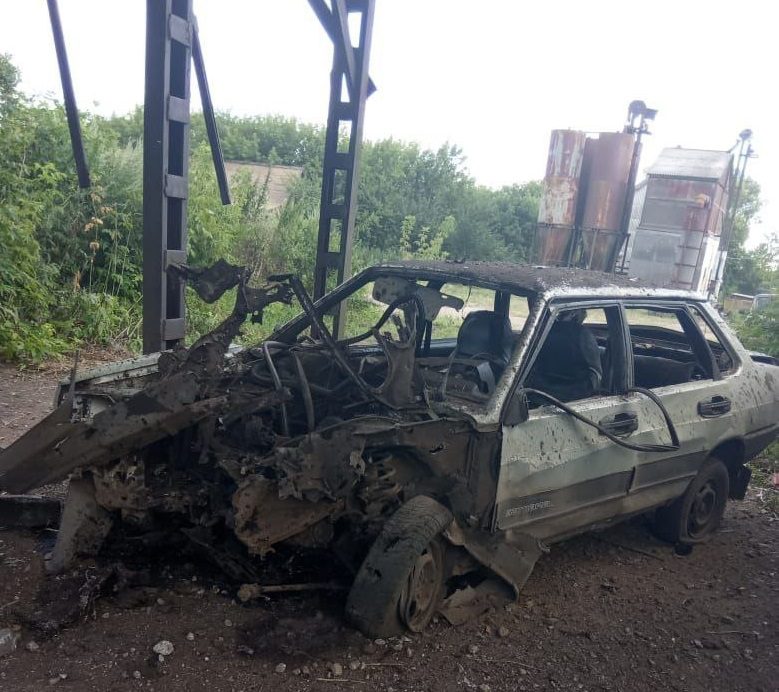
On July 31, due to enemy shelling, 25 hectares of crops and a farmer's car from the Bilopillia community in the Sumy region were destroyed.
Lost crops and abandoned lands
Apart from the danger of death or loss of crops from shelling, farmers face other difficulties. Indeed, at the beginning of summer, Ukrainian farmers successfully completed the sowing campaign. The agricultural front managed to carry out sowing despite hostilities, mining, fuel shortages and searching for new logistics routes. At the same time, new sowing will begin shortly, and it must be carried out despite the full-scale invasion of russia into Ukraine:
"If the agrarians managed to carry out the spring sowing, then the winter or spring one, the medium-sized business may not be able to do and will refuse to sow some areas, letting them fall under the "steam." So this year and next year, part of the fertile Ukrainian chernozems may remain unsown," Suzanne Grigorenko, executive director of the Seed Association of Ukraine, writes in her blog.
It is not yet possible to say how farmers' profitability decreased in numbers. Oleksandra Harmash cites only approximate data, which indicate a decrease in profitability in the agricultural sector by 30 percent.
Lack of fertilizers and plant treatments
Oleksandra Harmash claims that the success of spring sowing in 2022 was thanks to last year's preparations: despite the war, 84% of farmers' lands were provided with fertilizer, 55% with plant protection products, and 78% with seeds.
However, now the problem of providing fertilizers has become urgent. Due to high fuel prices and issues with transportation, the harvest of some crops is already deteriorating, and farmers are beginning to neglect fertilizers that are safe for the environment and human health because they have no other choice:
"Last year, some farmers bought fertilizer, but spring supplies were much smaller. I observe that those farmers who did not buy fertilizers or plant protection products on time are looking for at least some treatments on Telegram chats. The farmers who previously made sure that the treatments were not toxic currently buy whatever is available — fertilizers of the second and third class of toxicity [the first class is the most toxic, there are four of them — ed.]. It is already an additional burden on consumers' health," the expert explains to Rubryka.
Suspension of export
Another problem is the suspension of exports, which has caused a surplus of old products and a lack of places to store them. The russian occupiers destroyed part of the warehouses. If before the war, the capacity of granaries was 75 million tons, now it is 60 million tons. Experts predict that crop storage crisis may arise in Ukraine. That is why the EU governments are currently solving the issue of providing Ukraine with temporary storage facilities. All this also leads to unprofitability:
"In fact, the agricultural sector was left without income: it could not receive funds for its products, pay off loans, pay salaries, prepare for the next sowing, purchase machinery, and purchase grain. The next sowing requires significant investments, which farmers do not have. Therefore, agricultural companies are often forced to refuse further work because it is unprofitable," explains Suzanne Grigorenko.
However, warehouses for storing grain and other agricultural products are an advantage for large farmers. Those who have smaller farms — up to 20-30 hectares of land — did not need them until this year:
"Most farmers do not have places to store grain – they always collected their harvest from the field and sold it immediately. And now, when the ports are blocked, and requests from buyers are not so frequent, the grain storage problem has become urgent," says Garmash.
According to her, the demand for products has decreased several times, and some farmers are still unable to sell their grown products. Most likely, it will simply rot:
"If last year up to 20-30 buyers from different companies could call one farmer, then this year, no one called some of them at all; some were called by 2-3 buyers and were offered a very low price. If we are talking about vegetables, the farmers sold what they could, but something was thrown away or processed. They felt the damage," says Oleksandra Harmash.
Difficulties with processing the fields
In particular, crops were previously cultivated with the help of drones. It significantly saves fuel costs and can cover large areas. However, in some regions, drones are prohibited due to the security situation, so it is increasingly difficult for farmers to carry out agricultural work.
"The danger of shelling, problems with fuel, and the ban on the use of drones are why farmers refuse to cultivate the fields," says Suzanne Hryhorenko, executive director of the Seed Association of Ukraine.
What is the solution?
Ukrainian embassies are working on uncovering russian grain theft schemes
The world community has repeatedly drawn attention to the problem of grain theft by russians. For example, Lebanon refused to accept grain brought by the russians from Ukraine at the ports. The good news is that the Ukrainian Embassy there has already received documents and evidence confirming that the grain on board the ship was stolen, and a lawsuit is already being prepared.
But in Turkey, a "scheme" for the sale of stolen grain was revealed: the russians allegedly import it from the territory of the russian federation as the property of a russian agricultural company. The Ambassador of Ukraine to Turkey, Vasyl Bondar, talked about such a scheme:
"Actually, it enters Turkey with completely different documents, which show that it is exported from the territory of the russian federation, that the grain belongs to some russian company. That is, we now have a situation where there are at least three crimes: the first is theft, the second is illegal use of our closed ports, and the third is the export of this grain under forged documents since it would never have entered the Turkish market under documents from Kherson or the territory of the occupied Crimea," the ambassador said.
How to store grains?
The technology of storing grain in sleeves is not new and has been practiced by many Ukrainian farms for over 10 years. Until February 24, every year in Ukraine, 5 to 6 million tons of grain were stored in sleeves. These are polymer bags in which grain can be stored for 12-17 months.
First Deputy Minister of Agrarian Policy and Food Taras Vysotskyi has already stated that international partners will soon hand over to Ukraine larger sleeves, which hold 200,000 tons each, and equipment for loading and unloading approximately 10-15 million tons of grain. According to the deputy minister, this amount of equipment will be enough to preserve this year's harvest at the current export rate. According to Vysotskyi's forecasts, this year's harvest is expected at 52 million tons of grain and approximately 13-15 million tons of oil crops.
Financial assistance from international organizations
The world understands how important it is to support the Ukrainian agricultural sector, so it is introducing support programs for Ukrainian farmers.
For example, the USAID Agricultural and Rural Development Program (AGRO) is inviting applications for sub-grants to implement "Supporting Grain Direction MSMEs to Access Grain Storage and Drying Services."
You to me, I to you
To quickly solve urgent problems, Oleksandra Harmash advises putting the activity "in manual mode" and not being afraid to ask for help from other farmers, supporting each other:
"I advise you to cooperate in groups and let each other know: where there is fuel, where you can get fertilizers. We share this information on social networks, farmers save spots for each other," says the specialist.
Conducting calculations
"Currently, I see that our farmers have absolutely no time for this, but we need to make calculations to understand the cost of the product and calculate whether it is a loss or just a low profit," Harmash explains. The specialist drew attention to the fact that many farmers are currently volunteering, but one should not forget about financial literacy despite everything.



